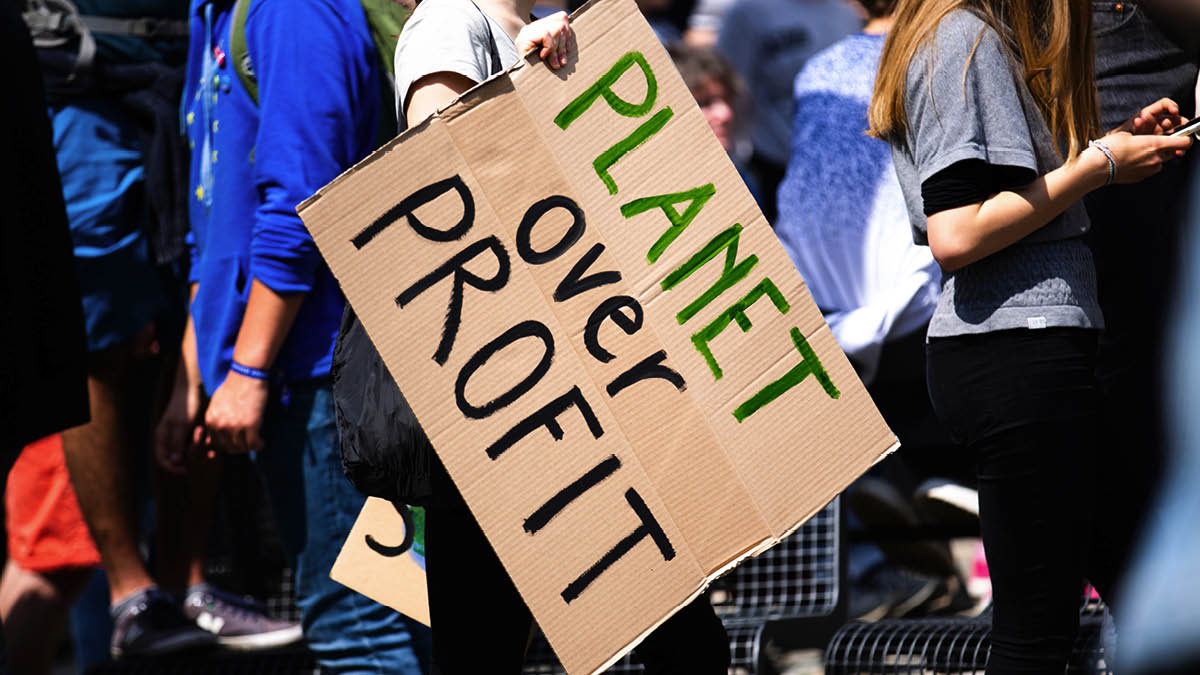Corporations and governments value immediate profit over saving the planet and it spurs on the greatest risk of all: inaction. The greatest contributors towards climate change are the ones not doing a thing about it nor changing their practices.
According to the Carbon Majors Report, 71% of global carbon emissions can be traced back to just 100 companies; some of the highest being investor-owned ExxonMobil, Shell, BP and Chevron. As well as the United States’ top 15 food and beverage companies, which according to Engage the Chain, generate nearly 630 million metric tons of greenhouse gases annually.
In the long-term, ignoring climate change and continuing harmful practices will cost these establishments trillions of dollars. However, the not too distant future doesn’t concern them when their eyes are set on right now.
“Many companies have set greenhouse gas reduction targets, but most of those targets fail to include the emissions associated with the entire life cycle of a given corporation’s products. This is important because when a company makes a product, that product requires raw materials that created their own emissions during harvest, extraction, refining, etc. (known as upstream emissions); and when a consumer uses that product, there are further emissions that come from the product’s use and eventual disposal (known as downstream emissions). Failing to account for or address these emissions means that the vast majority of greenhouse gases attributable to corporations and their products are falling outside of well-publicized corporate climate commitments.” – the Natural Resources Defense Council
Global warming deniers are vocal, despite scientific evidence disproving their opinions. Knowledge is readily available, and yet people remain intentionally ignorant. Well-educated scientists speak out, saying the climate crisis needs attention and their cries are disregarded.
Leading science organizations, including international and U.S. science academies, the United Nations Intergovernmental Panel on Climate Change, and scientific bodies around the world agree that climate change is occurring at increasing rates due to anthropogenic activity.
The general public faces the pressure of doing individual jobs to help fight against the climate crisis, yet their efforts hardly make a dent when a majority of carbon emissions come from big corporations. The public diminishes their personal carbon footprint, while corporations walk in size 22 boots.
People are urged to be more green, completing tasks like changing a lightbulb, installing a solar farm, or unplugging devices that aren’t in use. These individuals’ actions are helpful and they should continue their efforts. We are making progress, but it is still nowhere near the scale that is necessary to enact meaningful change. After all, the world’s energy system is 80% fossil fuel.
The future appears very dim. What chance do we have if these corporations and governments don’t try? It doesn’t help that in the United States, climate change has become a political issue.
More than half of Congress are avid climate change deniers and it isn’t because they disagree with the factually-proven science. It all leads back to money. OpenSecrets reveals that in 2016, more than 121 million dollars was poured into elections from oil and gas companies, 93 million on lobbying in 2023, and 125 million in 2022.
According to the Center for American Progress, “Between lobbying, political contributions, and advertising efforts, these interests spent 27 times as much as climate advocacy groups from 2008 to 2018 to obstruct climate action.”
To fix the climate crisis also starts with fixing Congress who consistently back lobbyists—and correcting democracy is not an easy feat.
Other efforts to undermine climate change action, such as voter suppression and enacting legislation against protests following a surge in climate demonstrations occur globally.
Is there absolutely nothing the individual can do to change the world’s fate? The Carbon Majors Report continues by stating, “If the trend in fossil fuel extraction continues over the next 28 years as it has over the previous 28, then global average temperatures would be on course to rise around 4℃ above preindustrial levels by the end of the century. This would entail substantial species extinction, large risks of regional and global food scarcity…”
The harsh truth is, sustainability is not profitable to the biggest contributors of carbon emissions, and until there is a solution that is, nothing will improve at the large scale the world desperately needs.











